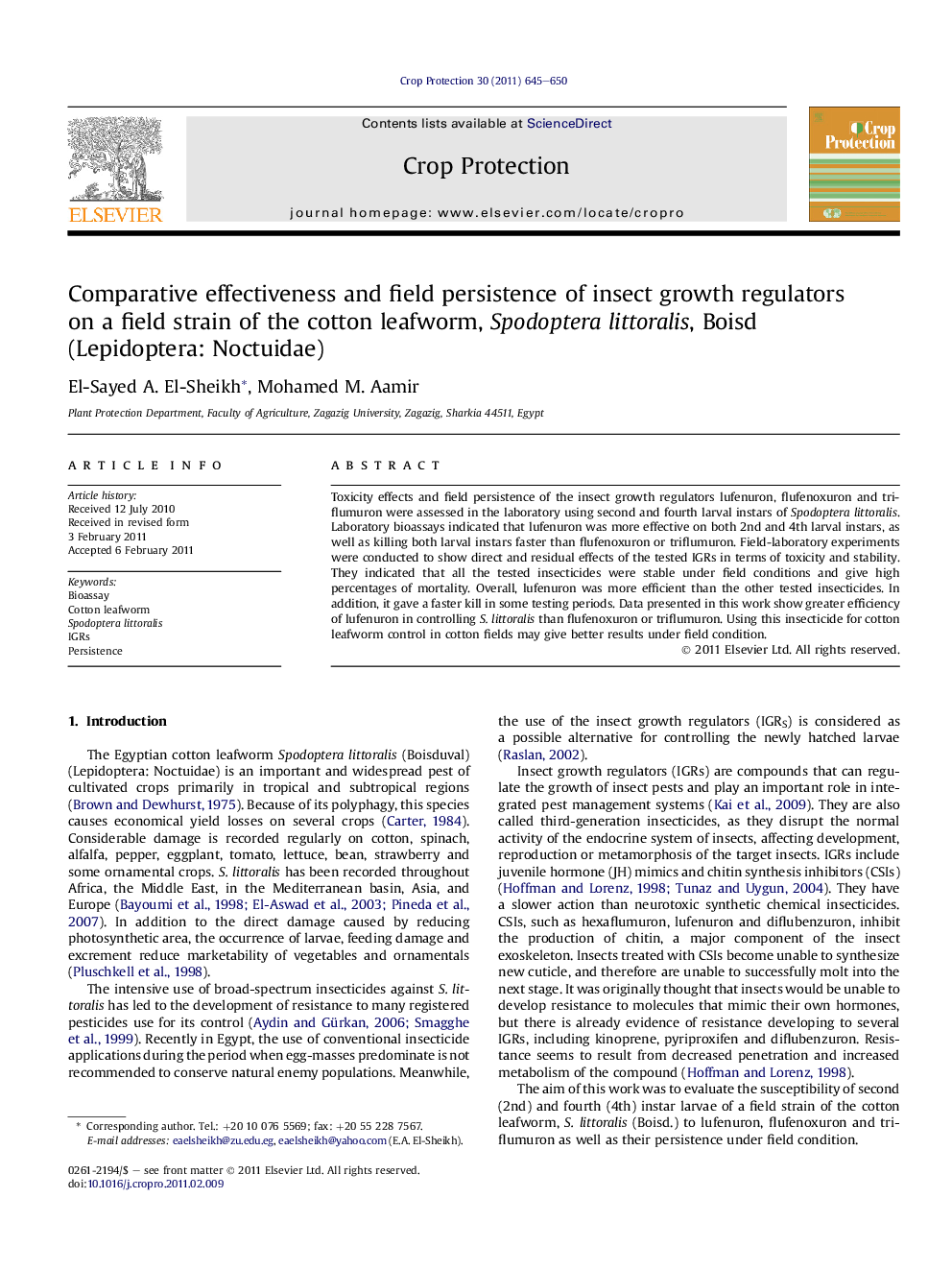| Article ID | Journal | Published Year | Pages | File Type |
|---|---|---|---|---|
| 4507056 | Crop Protection | 2011 | 6 Pages |
Toxicity effects and field persistence of the insect growth regulators lufenuron, flufenoxuron and triflumuron were assessed in the laboratory using second and fourth larval instars of Spodoptera littoralis. Laboratory bioassays indicated that lufenuron was more effective on both 2nd and 4th larval instars, as well as killing both larval instars faster than flufenoxuron or triflumuron. Field-laboratory experiments were conducted to show direct and residual effects of the tested IGRs in terms of toxicity and stability. They indicated that all the tested insecticides were stable under field conditions and give high percentages of mortality. Overall, lufenuron was more efficient than the other tested insecticides. In addition, it gave a faster kill in some testing periods. Data presented in this work show greater efficiency of lufenuron in controlling S. littoralis than flufenoxuron or triflumuron. Using this insecticide for cotton leafworm control in cotton fields may give better results under field condition.
► Lufenuron was more effective against S. littoralis larvae than flufenoxuron and triflumuron. ► Lufenuron killed S. littoralis larvae faster than flufenoxuron or triflumuron. ► Lufenuron, flufenoxuron or triflumuron were stable under field conditions. ► The tested IGRs gave highest percentage of mortality at 10 days post field treatment. ► Lufenuron application can be effective against S. littoralis larvae in cotton crops.
